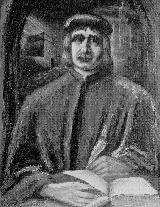 Dr. Francysk
Skaryna (1486-1540)
Dr. Francysk
Skaryna (1486-1540) St. Efrasinnia of Polacak (1110-1173)
- the first Belarusan saint and the first Slavic woman to be canonised by the Church. She herself copied many books for the library of the Cathedral of Polacak, the most ancient library in Belarus' in the 12-16 cc.
XIII-XVIII cc.
 Dr. Francysk
Skaryna (1486-1540)
Dr. Francysk
Skaryna (1486-1540)
- a great scholar and Doctor of Medicine at the University of Padua (Italy). He founded the first Belarusian publishing house (in Prague), where he commented and edited 23 books in Belarusian, including the Bible (at the time this was the first edition of the Bible in a Slavonic language and the second one in Europe).
Ipaci Pacei (1541-1613)
Ipaci Pocei was one of the founders of the Christian Unia or Greek Catholic Church. This church has conserved the rich Orthodox ritualistic tradition and yet was under the Pope's rule. Unia was sought as an escape from the polarization between Orthodox and Catholic churches, channeling respectively russian and polish influences on the Grand Duche of Lithuania (GDL), the heart of which was Belarus. This polarization resulted in many religious conflicts and unjustices. Unia was an attempt to establish our own religion that would allow us to stand as a sovereign nation. It was also a reaction on the Reformation happening in GDL at that time.
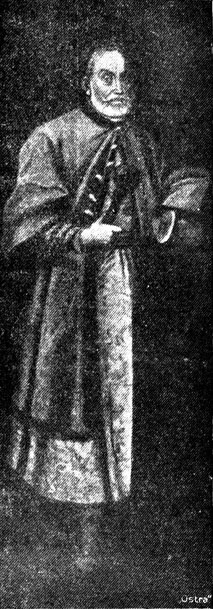 Leu Sapeha (1557 - 1633)
Leu Sapeha (1557 - 1633)
- is one of the greatest belarusian political figures, a renown by his wisdom statesman, lawyer and military commander. He stood at the head of the Grand Duche of Lithuania (ancient Belarusian state) at the times of G.D.L.'s highest cultural blossoming. He was a main editor and publisher of the last version of the Statut of the GDL - the ancient constitution of belarusians that still challenges the current state of democracy in Belarus. At all times Leu Sapeha was a powerfull guardian of Belarusian national interests and a stronghold of our independence.
Meleci Smatrycki (1578-1634)
Meleci Smatrycki was perhaps one of the most influential religious figures in the history of eastern slavs. His ideas and works have shaped an entire future development of spiritual relationship of belarusians, ukrainians and russians. Meleci Smatrycki successfully combined a broad knowledge, education, the talent of writer and the skill of rhetor. His development of Church-Slavic language in large defined the future of all eastern and southern slavic languages. He was responsible for numerous religious conflicts and yet all his life he strived to unify eastern slavs on their spiritual path in Christian Love.
One of the cultural figures that have profoundly influenced Belarusian Renaissance of XVI c. is Symon Budny. He was a philosopher, teacher, publishist, religious and social activist. Many of the belarusian intellectuals were influenced by his ideas.
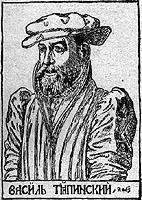 Vasil' Ciapinski (1530 - 1604)
Vasil' Ciapinski (1530 - 1604)
Vasil' Ciapinski belongs to generations of scientists and philosophers of Belarusian Renaissance of XVI c. He was a first translator and publisher of the "New Testament" in Belarusian language. His "New Testament" was printed around 1570 in a printing house that he organized near Polacak.
The family left its imprint on a wide variety of human endeavors - from public and political life to culture and education. For centuries members of the family meticulously collected and preserved books, documents, paintings, weaponry, and many rare and valuable objects that could fill entire museums. With their own money, the Radzivils built printing shops, theatres, churches and castles.
XIX-XX cc.
Jan Cacot (1796-1847)
Naming the first awakeners of the Belarusian nation one should necessarily mention Jan Cacot (pronounced Chachot). It is difficult to overestimate the significance of the Jan Cacot's contribution to the Belarusian culture. He is the dawn of the new Belarusian literature, its first steps, the spring of the Belarusian national renaissance.
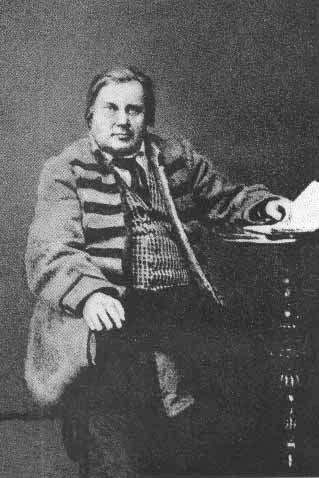 Vincent
Dunin-Marcinkievich (1808-1884)
Vincent
Dunin-Marcinkievich (1808-1884)
Vincent Dunin-Marcinkievich is considered a founder of the New Belarusian Literature. His lifework was devoted to establishment of the literature in Belarusian language and he laid the democratic foundations of it's futher development. He was prosecuted and offended from both russian imperial system and polish nobility (shlyahta), and yet he managed to find means to publish several books, operas and dramas, and to give way to Belarusian literary language. Dunin-Marcinkievich had built a strong foundation for a future development of the belarusian national literature and was at the very beginning of belarusian cultural revival.
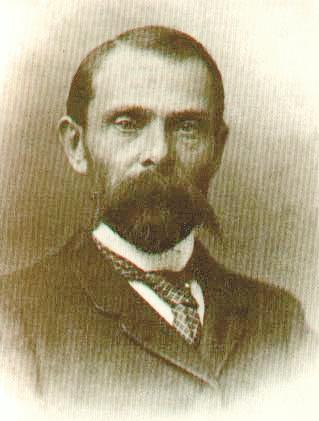 Francishak
Bahusevich (1840-1900)
Francishak
Bahusevich (1840-1900)
Francishak Bahushevich was among the first belarusian intellectuals working towards the awakenning of belarusian national consciousness during the period of the strongiest tsarist reaction. He is one of the first poets that have started a New Belarusian Literature. He had given a new life to a Belarusian language in his works. All his life was devoted to an idea of belarusian cultural revival.
Kastus Kalinouski (1838-1864)
Kastus Kalinouski, publisher of the clandestine newspaper "Peasant's Truth" and leader of the 1863-64 uprising in Belarus. He led the enslaved people against the colonial regime of the Russian tsarism and at the age of 26 was publicly executed by the gendarmes in March 1864 in Vilnia (Vilnius)
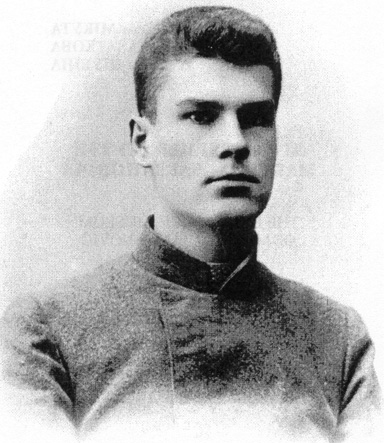 Maksim Bahdanovich (1891
- 1917) Maksim Bahdanovich (1891
- 1917) A poet of fine sensibility and unmatched technical mastery, Belarus first fully qualified literary critic, and the author of a few strikingly original short prose works, Bahdanovich played a unique role in the development of early twentieth-century Belarusian literature. |
This page is part of the Virtual Guide to Belarus - a collaborative project of Belarusian scientists abroad Go to Belarusian towns, cities and several villages - Go to Belarusian Heritage main page © 1995-2001 VG |
. |